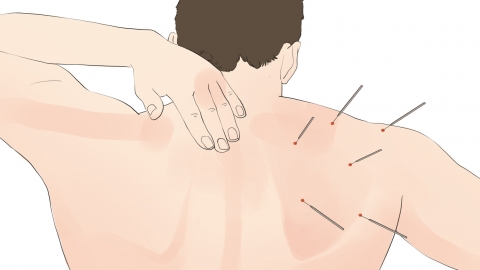Why do I feel very sleepy after acupuncture?
Generally, feeling very sleepy after acupuncture may be caused by factors such as a repair response, energy consumption, qi and blood deficiency, neurasthenia, or insufficient cerebral blood supply. It is recommended to seek timely medical consultation to identify the underlying cause and receive targeted treatment. Detailed explanations are as follows:
1. Repair Response
Acupuncture regulates the circulation of qi and blood through stimulating acupoints. When the previously disturbed qi and blood begin to normalize, the body enters a self-repair state, and the central nervous system shifts from a stress-response mode to a rest-and-recovery mode, manifesting as drowsiness. Usually, no special treatment is required; resting lying down for 10–20 minutes can relieve the symptoms, and strenuous activity immediately after treatment should be avoided.

2. Energy Consumption
During moxibustion, the body mobilizes energy to regulate qi and blood. After treatment, the body's energy may temporarily be in a relatively deficient state, prompting the brain to send signals for rest, which leads to drowsiness. It is advisable to drink some warm water, consume easily digestible food, and avoid physical exhaustion for 1–2 hours afterward.
3. Qi and Blood Deficiency
Individuals with chronic deficiency of qi and blood may experience temporary reduced cerebral blood supply when acupuncture directs qi and blood toward affected areas, leading to mild cerebral hypoxia and drowsiness. Dietary improvements such as consuming astragalus porridge or Chinese yam and red date soup may help alleviate this condition.
4. Neurasthenia
In patients with imbalances in neurotransmitters such as serotonin and dopamine, acupuncture-induced regulation of nerve function may temporarily alter neurotransmitter levels, briefly inhibiting cortical excitation in the brain and causing drowsiness. Maintaining regular sleep patterns and avoiding staying up late are recommended.
5. Insufficient Cerebral Blood Supply
When there is mild cerebral vascular stenosis, temporary hemodynamic changes after acupuncture may exacerbate cerebral hypoperfusion, causing drowsiness, often accompanied by dizziness and limb weakness. Immediate cessation of strenuous activity, lying down to rest, and seeking prompt medical attention are advised. Diagnostic tests such as carotid ultrasound and cerebral blood flow imaging should be performed, and after a clear diagnosis, treatments such as ginkgo biloba extract injection or aspirin enteric-coated tablets may be used to improve circulation.
Before receiving acupuncture, it is recommended to inform the practitioner of your medical history, including conditions such as anemia or cerebrovascular disease, to reduce the risk of adverse reactions.





